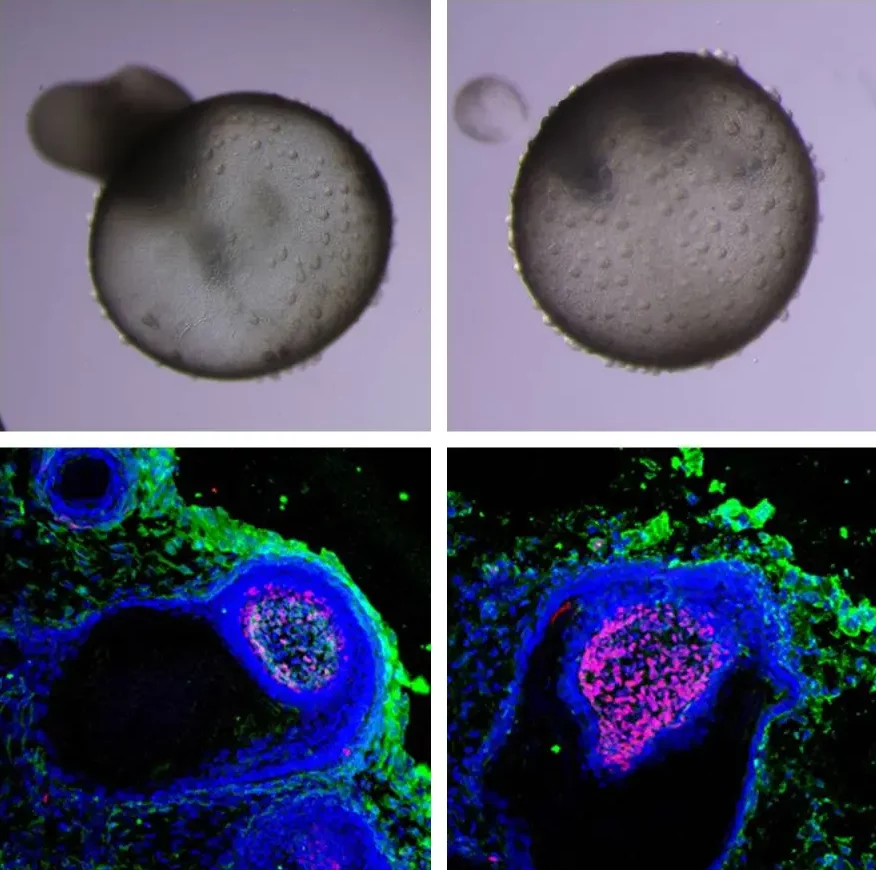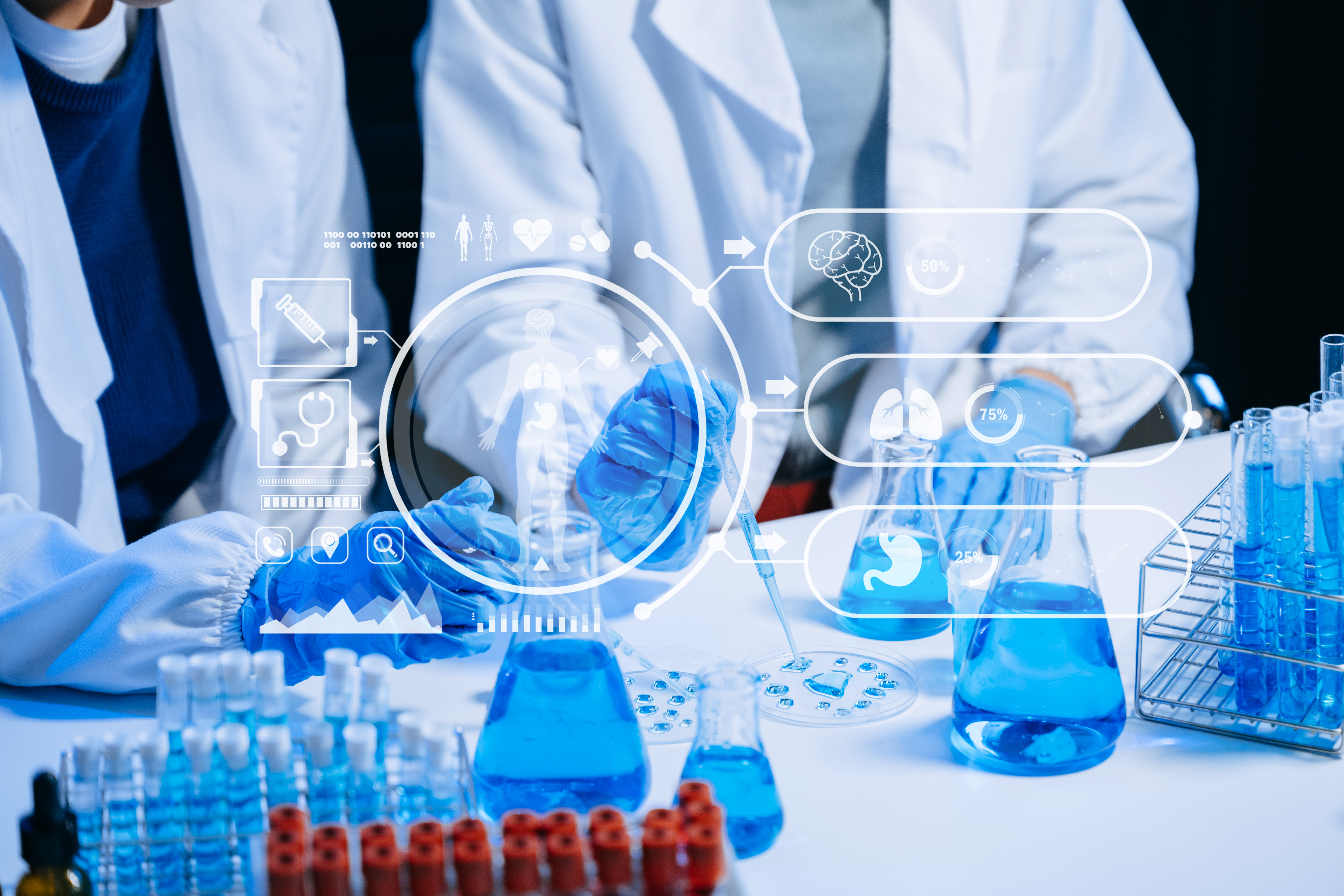Pluripotent stem cell-derived skin organoids (PSOs) offer a promising developmental skin model, yet they face limitations, including an inverted anatomy and incomplete skin differentiation. In this study, researchers developed a method to generate PSOs effectively in a chemically-defined 3D extracellular matrix (ECM) environment. By utilizing collagen type I supplemented with laminin 511, they observed increased growth but incomplete skin differentiation due to necrosis. To address this, PSOs were cultured in a 3D bioprinted spindle-shaped hydrogel device, which reduced necrosis and enhanced keratinocyte differentiation and hair follicle formation. Furthermore, adapting the system as a microfluidic device allowed for the creation of asymmetrical gradients of differentiation factors, improving spatial organization of dermal and epidermal cells. This study underscores the importance of ECM and morphogen gradients in promoting and spatially-controlling skin differentiation in PSOs.
Keywords: Organoids, skin organoids, pluripotent stem cells, extracellular matrix, microfluidics




